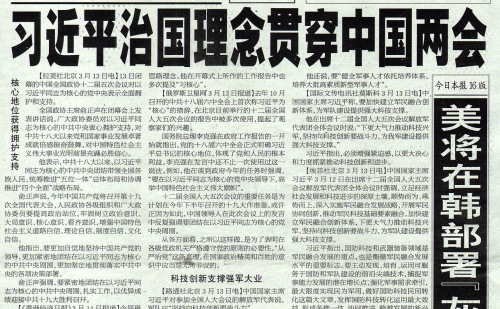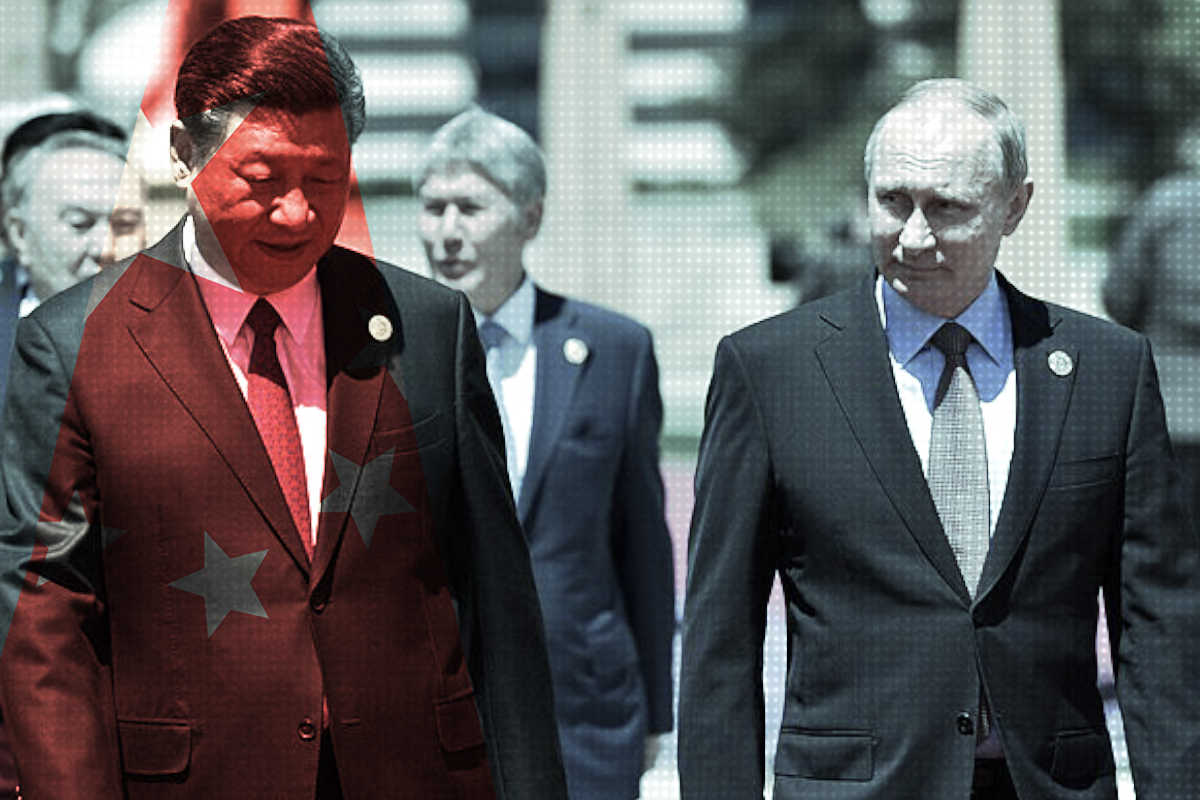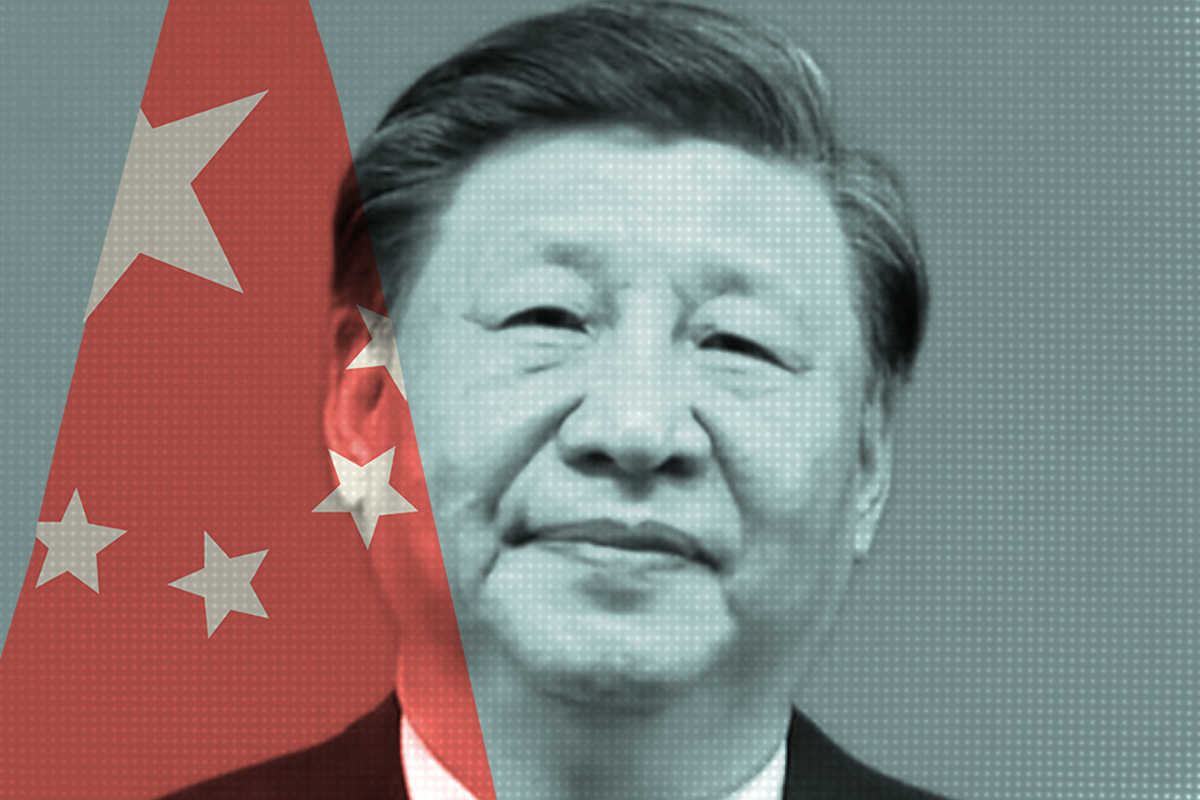
Xi Jinping attends the APEC meeting in 2017. Image by Kantei.go.jp available at Flickr.com under CC license.
The recent pageantry surrounding the fifth and final session of China’s 12th National People’s Congress — and all of the hubbub over growth targets, budgets and measures to curb (still) rising housing prices — was all in a sense window dressing for a far more important political message: the unassailable position of President Xi Jinping as “the core” of the Chinese Communist Party leadership.
As we draw closer to the crucial 19th National Congress of the CCP, to be held later this year, we can expect that message to intensify.
Since he came into power in 2012, Xi Jinping has managed to consolidate his position in a way we have not seen since era of Deng Xiaoping. By 2014 Xi was already being trumpeted in the official state media with a vigor we had not seen in a quarter century. According to CMP Director Qian Gang’s study that year of the names of past and present leaders in the People’s Daily, the CCP’s flagship newspaper, Xi’s name appeared both on the front page and inside pages of the paper with a frequency more than double that of Jiang Zemin and Hu Jintao.
Xi’s status was elevated further in October last year at the 6th Plenum of the 18th National Congress. He was designated “the core” (习核心), something neither of his predecessors in the post-Deng era managed — although the term “leadership core” (领导核心) was sometimes used in official discourse during the Jiang era.
During the “two meetings” this month, as policies and prescriptions took center stage, Xi’s core status was the backdrop. In his report to the Chinese People’s Political Consultative Conference, the country’s ostensible advisory body, Yu Zhengsheng mentioned the core status of Xi Jinping no less than six times.
Well, you may wonder — whose counting?
But that is precisely the point. In the opaque world of Chinese politics under the CCP, words do matter. They matter so much, in fact, that one of the most crucial questions we must ask now, months ahead of the 19th National Congress, is exactly what word or phrase will come to symbolize the power of Xi Jinping and his governing vision?
Xi Jinping may be “the core,” but that core cannot remain empty. The question, then, is what “banner term,” or qizhiyu (旗帜语), will announce his political legacy to the world? How Xi is able to frame his legacy could tell us a great deal about how he plans to act — including, for example, whether he plans to seek a third term in 2022.
We are knee deep already in the esoterica of Chinese political discourse, in the “diction and doublethink” that are a living part — even if we choose to ridicule and dismiss it — of the way politics work in China. So allow me to recap.
Every leader of any consequence in the history of the Chinese Communist Party has had his own “banner term,” a concise (more or less) turn of phrase that is meant to sum up his contributions and, more importantly, his importance to that history itself. In the world of CCP discourse, the “banner term” becomes the coin of the realm — until another important leader comes along to mint a new one.
We have had “Mao Zedong Thought” (毛泽东思想), the original banner term under the CCP. We have had “Deng Xiaoping Theory” (邓小平理论), the phrase encompassing the ideas of the market reformer — and managing their continuity with the Party’s socialist orthodoxy. We have had the “Three Represents” (三个代表), the guiding theory of Jiang Zemin. And we have had the “Scientific View of Development” (科学发展观), Hu Jintao’s blueprint, in the broadest terms, for the creation of a “socialist harmonious society.”
Jiang Zemin’s “Three Represents” was written into the Party Charter (党章) at the 16th National Congress in 2002, just as he was stepping down. Hu Jintao’s “Scientific View of Development” was written into the Party Charter at his halfway mark, during the 17th National Congress in 2007.
So what of Xi Jinping’s banner term?
Over the past few years, the amateur astronomers of Chinese political discourse — and in this field, we are all amateurs — have spotted a number of possible candidates. One of the favorites has been the “Four Comprehensives” (四个全面), encompassing the “comprehensive building of a moderately wealthy society, comprehensive deepening of reforms, comprehensive governing the nation according to law, and comprehensive strict governance of the Party.”
The phrase has a certain banner term bravado, but it lacks originality. It is similar in meaning to Jiang Zemin’s “Three Represents” — and in intonation it is too much like both the “Three Represents” and the “Scientific View of Development.” Hardly the stern stuff of a leader who has, for the first time in generations, promoted himself as “the core.”
How about the phrase “the spirit of General Secretary Xi Jinping’s series of important speeches”? We’ve certainly seen a lot of this one since 2013. But, no. The term does not have that freshly-minted feel, and it is too long.
Banner terms must be pithy, in the Leninist sense of the word. They must be phrases of consequence, with the soaring gravitas of “isms” (主义), “ideas” (思想), “theories” (理论), “strategies” (战略) or “concepts” (观念).
In recent months, we’ve seen a new phrase glinting faintly among the stars of Chinese discourse — “. . . the new concepts, new ideas and new strategies of governance since the 18th National Congress.” This has the basic tone of the banner term, but it lacks intensity and is too verbose.
But things may have shifted last Thursday night.
During the March 16 broadcast of Xinwen Lianbo, the nightly official newscast on China Central Television, a new phrase was introduced as the anchor remarked how the foreign press had reported on the National People’s Congress:
Every year, coming with the spring, the two meetings [of the NPC and CPPCC] bring a new atmosphere for China and the world. During the two meetings this year, many international media reports said that Xi Jinping governing concepts were threaded through the two meetings, and they believed that the two meetings created ‘global expectations’ . . .
And there we have a very sound candidate for Xi Jinping’s banner term: “Xi Jinping’s Governing Concepts” (习近平治国理念).
Lending further credence to this phrase is the fact that it appeared one day earlier in a large headline in Reference News (参考消息), the newspaper published by the official Xinhua News Agency that compiles the views on China revealed in the foreign press.

According to CMP Director Qian Gang (钱钢), this new phrase, “Xi Jinping’s Governing Concepts,” is the closest we have come so far to a probable new banner term for the most powerful leader since Deng Xiaoping.
Analysts have speculated, given Xi Jinping’s powerful profile, on whether his banner term might include his name — something that has not happened since Mao Zedong and Deng Xiaoping. The question was whether Xi might be “name-crowned,” or guanming (冠名), through his designated banner term.
If this new phrase is indeed Xi Jinping’s banner term, then this is what we are witnessing: Xi’s crowning as a paramount leader to guide China through a new period of historical transition.
The hypothesis many observers in China have put forward — most of them quietly — is that Xi Jinping’s banner term would probably consist of his name plus a major concept idea. But this is a tricky game. “Xi Jinping-ism” (习近平主义) would be too lofty. Not even Mao dared add “ism” to his name, which would have put him on equal footing with Marx.
“Xi Jinping Thought” (习近平思想)? This is a possibility. When the Sixth Plenum of the 18th National Congress ended last fall, one scholar stated on Phoenix Online: “The articulation of the Four Comprehensives tell us that Xi Jinping thought is already mature.” It was a testament to Xi Jinping’s position and power as “the core” that such words could be spoken at all.
How about “Xi Jinping Theory” (习近平理论)? This is possible too. But there would be an overlap with “Deng Xiaoping Theory” (邓小平理论). And no leader worth his salt likes to share.
This leaves us with two distinct possibilities. We have “Xi Jinping Strategy” (习近平战略) and “Xi Jinping Concept” (习近平理念). Between the two, “concept” is slightly more elevated in status, more befitting a leader who feels little need to compromise.
The emergence Thursday of “Xi Jinping’s Governing Concepts” marks the first time we have, through important official Party media, a possible banner term perfectly suited to the above reading of China’s current political situation, and to the implicit laws of CCP discourse.
“Xi Jinping’s Governing Concepts” is not as soaring as either “thought” or “theory.” But an additional advantage may be that it has a more practical feel to it. It would be just audacious enough, while still in keeping with Xi Jinping’s down-to-earth public perception.
This could very well be our candidate. But there is another distinct possibility — that this could be just the first step in a two-step process leading to the ultimate crowning of Xi Jinping. The first step would be the deployment of “Xi Jinping’s Governing Concepts” for the 19th National Congress this year. This could then be shortened to “Xi Jinping Concept” in 2022, in time for the 20th National Congress.
And who knows? By that time, looking at his third term in office, no-nonsense Xi might qualify for the greatest nonsense of all — that coveted “Xi Jinping Thought” (习近平思想).




















